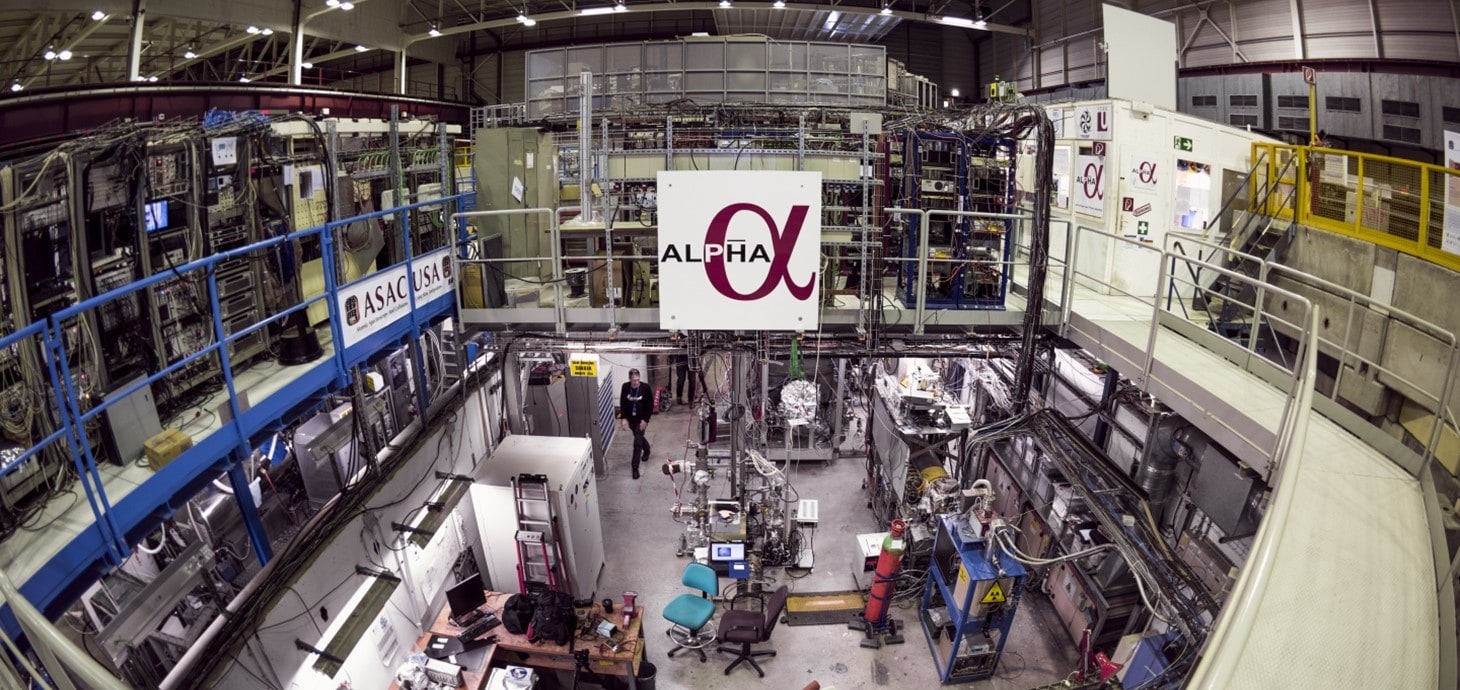These articles are now archived and will no longer be updated.

CERN, the European Organization for Nuclear Research, is one of the world's largest and most respected centres for scientific research. Home to the Large Hadron Collider (LHC), which is located 100m underground and consists of a 27-kilometre ring of superconducting magnets, CERN’s history dates back to the 1940s and is the birthplace of the World Wide Web.
Swansea University were recently granted unique access at CERN, where we caught up with Niels Madsen, Professor of Physics and the lead for Swansea’s research team at the facility in Geneva, Switzerland.
What is Swansea University’s involvement at CERN? How long have we been associated there?
Swansea University is a lead institution and involved in the Antihydrogen project called ALPHA. We have been active at CERN since 1999, first in the pioneering ATHENA experiment that made the first low energy antihydrogen in 2002 and since 2005 in the ALPHA experiment that Swansea co-founded with a number of other partner institutions.
How many researchers from Swansea University are at CERN?
Swansea maintains a permanent presence of six people at CERN – one academic, two research assistants and three PhD students. Additionally, there are four staff based in Swansea, who also spend considerable time at CERN, and every year one or two MA students have the opportunity to do their final year project at CERN.
What is the ALPHA project?
According to our current understanding, there should be equal amounts of matter and antimatter in the universe. However, the amount of antimatter in the observable universe appears to be tiny. The ALPHA collaboration studies trapped antihydrogen in order to determine if a hitherto unobserved difference between matter and antimatter could be responsible for this unexplained asymmetry. As symmetry between matter and antimatter is an integral part of our models explaining the fundamental forces of nature, any discrepancy found would have profound consequences.
Are our team of researchers working on any other experiments/research?
Swansea is the only university in Wales that is active at CERN and is only involved in the ALPHA experiment. However, unlike most university-sized experiments, the ALPHA experiment is a larger undertaking, involving 11 institutions and many diverse branches of physics. The team working on ALPHA needs to be working on cryogenics, ultra-high vacuum techniques, super-conducting magnets, advanced particle detectors, lasers, atomic physics, plasma physics and particle physics, and of course develop both the control systems and electronics to make it all work together.
Do you think we will ever get to the bottom of the matter and antimatter conundrum and why the universe exists?
The last 100 years has seen a revolution of our understanding of the physics world, a revolution that is slowly seeping into our everyday lives. For example, we can now describe in an (almost) consistent manner how the universe evolved from the Big Bang until today. However, we also know that our current models do not explain all observables; examples include neutrino masses, dark matter, dark energy as well as the universal matter and antimatter asymmetry. Despite these questions, the increase in understanding is remarkable, and I believe that eventually we will find the answers to these questions, but I also believe that when we do we are likely to be facing new questions at an even deeper level of understanding.
What opportunities are there for students studying at Swansea to get experience with CERN? Because everything isn’t just physics related, is it?
CERN is, to a large degree, not a physics organisation. In fact, CERN is a facilitator, in the same way as an airport is not an airline but a facilitator of air travel. Running CERN is the job of applied physicists, engineers, mathematicians, computer scientists and technicians, using CERN is the job of physicists (mostly). CERN therefore runs an extensive number of training, work experience and placement schemes for non-physicists and also non-STEM. For example, people studying international law may find a placement in administrative services that could be eye opening as CERN is an international treaty organisation, legally similar to the United Nations. CERN works on machine learning, novel materials and many other things as well. It is definitely worth checking out potential opportunities on CERN’s website.
What is Swansea University’s future with CERN?
The timescale of the Antiproton Decelerator complex that supplies the ALPHA and other experiments with antiprotons (the reason we are at CERN in the first place) is at least another 10-20 years in operation, and ALPHA certainly has a programme for that long. Obviously, if we find a difference between matter and antimatter, our activities are likely to continue for a very long time. In addition, we are hoping that more of the University’s colleges will open their eyes to the opportunities for collaboration at CERN and I’m currently working to get more people involved.
Do you think BREXIT will affect our involvement and work at CERN? Or is that too early to say?
As mentioned briefly, CERN is a treaty organisation like the UN, and pre-dates the EU by almost a decade, so, the relationship with CERN will remain unaffected in principle. CERN is also the host for users like us. Therefore, Brexit does not change the UK’s relationship with CERN, but it is likely to affect the UK’s relationship with the host states of CERN. The effect of the latter on people going to CERN remains to be seen.
